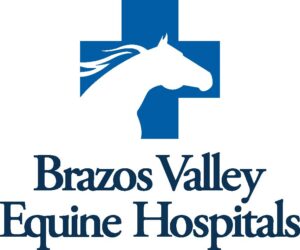Our horses are magnificent companions, offering us joy, leisure, and a powerful connection with the natural world. But just like any other beloved creature, they can experience unexpected health crises. These emergencies can be frightening and confusing for horse owners, leaving them unsure about the best course of action. Recognizing the signs of trouble and knowing when to call a veterinarian can make all the difference in your horse’s outcome.
Recognizing Equine Emergencies: Acting Quickly When Your Horse Needs Help
Early intervention is crucial for a positive outcome in equine emergencies. So, how do you know when a trip to the vet is no longer optional and immediate action is required?
Here are some key warning signs to watch out for:
- Changes in Behavior: A normally calm horse that becomes withdrawn, aggressive, or restless could be signaling pain or discomfort. Pay close attention to any sudden shifts in their usual temperament.
- Difficulty Breathing: Rapid, shallow breathing, flared nostrils, or abdominal breathing are all signs of respiratory distress. This can be caused by various factors, including allergies, infections, or choking. Every second counts in these situations, so seek immediate veterinary attention.
- Colic Symptoms: Colic, a severe abdominal pain often caused by gastrointestinal issues, is a leading equine emergency. Signs include pawing at the ground, rolling, sweating, and looking at their flank. Don’t wait for symptoms to worsen, a prompt veterinary diagnosis is essential for successful treatment.
- Inability to Stand or Walk: If your horse struggles to rise or maintain their balance, it’s a critical situation. This could be due to neurological problems, musculoskeletal injuries, or severe colic. Don’t attempt to move the horse yourself, call your veterinarian immediately.
- Excessive Bleeding: Any significant bleeding requires immediate veterinary attention. Apply direct pressure to the wound with a clean cloth or bandage to control bleeding while waiting for help.
Remember, this is not an exhaustive list. If you have any concerns about your horse’s health or behavior, err on the side of caution and contact your veterinarian. The sooner you act, the better chance your horse has for a full recovery.
Don’t Wait Until Morning: 24/7 Emergency and Critical Care at Brazos Valley Equine Hospitals
Horse emergencies can strike at any time, day or night. That’s why Brazos Valley Equine Hospitals, your trusted equine veterinary partner in Arizona, Texas, offers 24-hour monitoring and critical care services.
Here are some situations where seeking emergency veterinary care is crucial:
- Acute Trauma: Accidents, falls, or other incidents can cause serious injuries in horses. If your horse experiences a fall, kick, or any other trauma, especially if they show signs of pain, difficulty moving, or bleeding, don’t hesitate to call us. Early intervention can minimize complications and improve recovery outcomes.
- Respiratory Distress: Horses with difficulty breathing need immediate medical attention. Signs like rapid breathing flared nostrils, or abdominal breathing could indicate various problems like choking, allergies, or infections.
- Foaling Complications: The birthing process (foaling) can be unpredictable, even for experienced horse owners. If you observe any complications during foaling, such as the foal being stuck in the birth canal, excessive bleeding from the mare, or signs of distress in either the mare or foal, seek immediate veterinary assistance.
- Colic with Severe Symptoms: As mentioned earlier, colic is a serious abdominal pain in horses. While some mild colic cases might resolve on their own, if your horse exhibits severe symptoms like continuous rolling, sweating profusely, or looking at their flank relentlessly, it’s a medical emergency.
Remember, this list isn’t exhaustive. If your gut feeling tells you something is seriously wrong with your horse, trust your instincts and contact your vet.
Taking Charge in an Equine Emergency: What You Can Do Until Help Arrives
Even during a frightening equine emergency, staying calm and taking initial steps can make a big difference for your horse. Here’s what you can do while waiting for veterinary assistance:
- Safety First: Ensure your safety and the safety of others around you. If your horse is agitated or in pain, approach them cautiously and avoid getting in the way of potential kicks or strikes.
- Assess the Situation: Quickly try to understand what’s wrong. Look for signs of injury, breathing problems, or any obvious dangers in the environment.
- Contact Your Vet Immediately: Don’t wait even a minute, call the emergency line right away. A brief explanation of the situation will allow the vet to offer initial guidance and prepare for your horse’s arrival.
- Keep Your Horse Comfortable: If possible, move your horse to a safe, quiet area away from any immediate hazards. However, don’t attempt to move them if they’re struggling to stand or seem at risk of falling.
- Monitor Vital Signs: While waiting for help, try to monitor your horse’s breathing rate and heart rate. These simple observations can provide valuable information to the veterinarian when they arrive.
These are temporary measures to bridge the gap until professional veterinary help arrives. Trying to treat your horse yourself or delaying veterinary care can be dangerous. Trust the expertise of the veterinarians at Brazos Valley Equine Hospitals. We have the advanced equipment and extensive experience to diagnose and treat a wide range of equine emergencies.
Peace of Mind Through Preparation: Equipping Yourself for Equine Emergencies
Horse emergencies can be stressful and unpredictable. However, by being prepared and knowing when to seek veterinary attention, you can significantly increase your horse’s chances of a full recovery. Brazos Valley Equine Hospitals, serving the Arizona, Texas area, and surrounding communities, is committed to providing exceptional 24/7 emergency care for your horse.
For regular checkups and preventative care to help avoid emergencies altogether, Brazos Valley Equine Hospitals offers a comprehensive range of services. Schedule an appointment today and ensure your horse receives the ongoing care they deserve to live a long, healthy life. Let Brazos Valley Equine Hospitals be your trusted partner in equine health, providing peace of mind for you and optimal well-being for your beloved horse.

